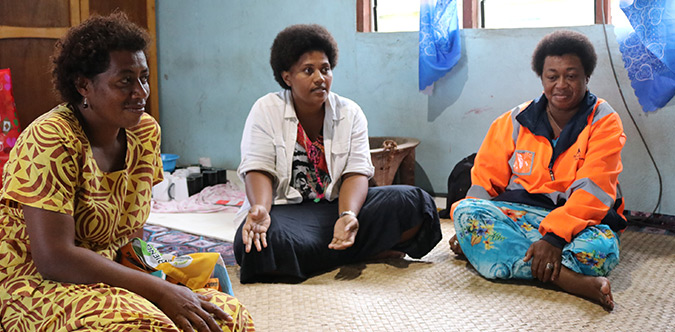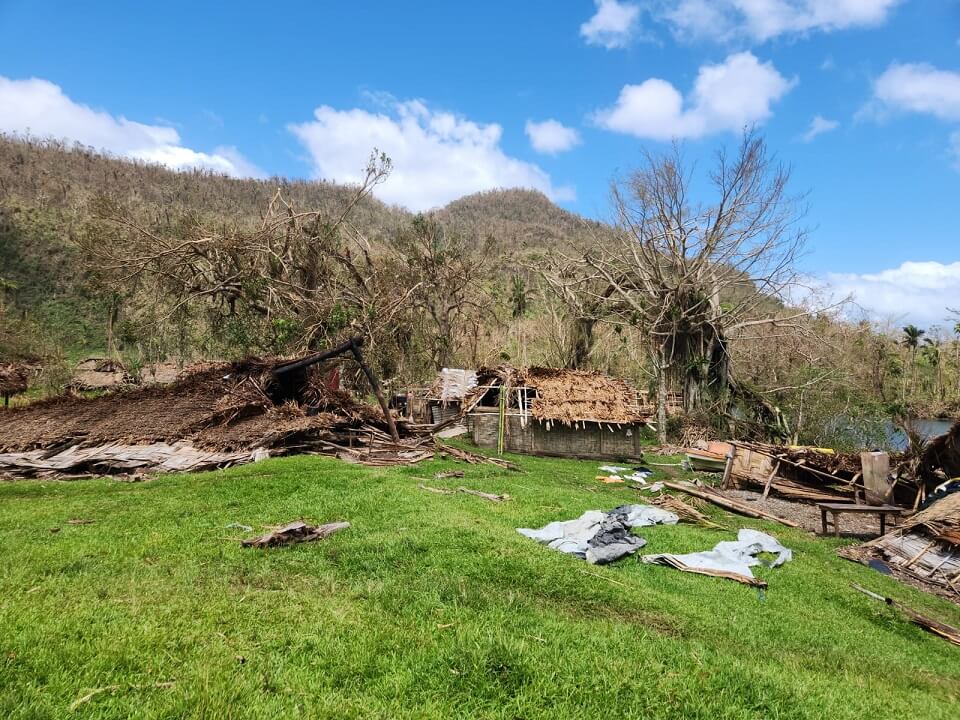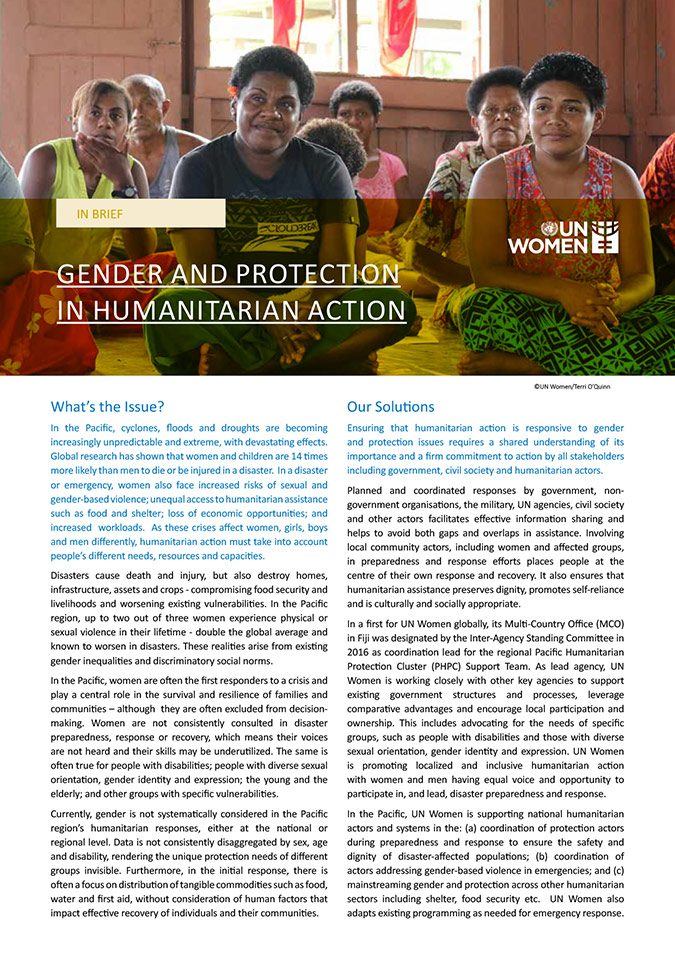
Peace, Security, Humanitarian, and Resilience

Photo: UN Women/ Sarika Chand
The Pacific region is among the most vulnerable in the world to the effects of climate change, extreme weather events, and natural disasters. Cyclones, floods, and droughts are becoming increasingly unpredictable, frequent, and intense in nature with devastating effects. Women are often the first responders to crises and play a central role in the survival and resilience of families and communities but are often not active participants in shaping the response, recovery, and resilience-building efforts.
Despite experiencing more risks and having less access to urgently needed resources and support, women are not consistently brought into the conversation about how to prepare for, recover from, and strengthen their resilience to disasters. The protection of women and girls in all their diversity is crucial in disaster response. The meaningful participation of women is vital to all successful peacebuilding, peacekeeping, humanitarian and resilience building action.
UN Women in the Pacific is focused on ensuring that humanitarian planning, response frameworks, and programming are gender and protection inclusive. UN Women is also committed to ensuring local women’s organisations are equipped and empowered to lead preparedness for and in response to disasters, supporting them as they strengthen the capacity of women and girls in their communities.

Photo: UN Women/ Betty Zinner-Toa
PROGRAMME AT A GLANCE:
Key Project: Women’s Resilience to Disasters (WRD) Programme
Timeframe: 2021-2025
Countries: Fiji, Kiribati, Solomon Islands and Vanuatu.
Goal: The lives and livelihoods of women and girls are resilient to disasters and climate change contributing to sustainable, secure, and thriving communities.
Focus areas:
- Engage humanitarian actors from all sectors in gender responsive prevention, preparedness, and recovery frameworks, systems, and processes.
- Ensure women and girls can withstand multiple hazards, recover from disasters, and are resilient to future crises.
The WRD Programme is supported by the Australian Government and implemented in the Pacific by UN Women.
Key Project: Women’s Peace and Humanitarian Fund (WPHF)
Timeframe: 2017 - Ongoing
Countries: : Fiji, Vanuatu, Solomon Islands, Palau, Samoa, Tonga.
Goal: To empower local women to be a force for crisis response and lasting peace.
Focus areas:
- Ensuring that humanitarian crisis response planning, frameworks and programming which is informed by gender analysis and needs assessment (technical tools and direct support to local women’s orgs)
- Ensuring that women’s and girls’ safety physical and mental health, and security is assured and that their human rights are respected through measures that prevent acts of violence, facilitates access to services for survivors of violence, and strengthens accountability mechanisms.
Latest news
Featured Publication
Gender and Protection in Humanitarian Action
Currently, gender is not systematically considered in the Pacific region’s humanitarian responses, either at the national or regional level. Data is not consistently disaggregated by sex, age and disability, rendering the unique protection needs of different groups invisible. Furthermore, in the initial response, there is often a focus on distribution of tangible commodities such as food, water and first aid, without consideration of human factors that impact effective recovery of individuals and their communities... Read more
